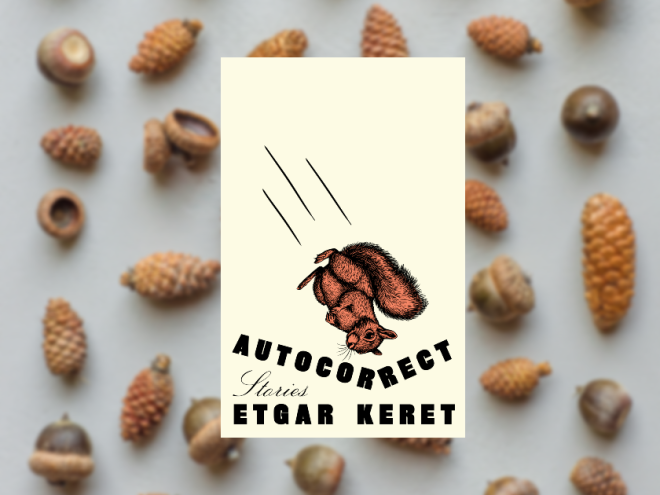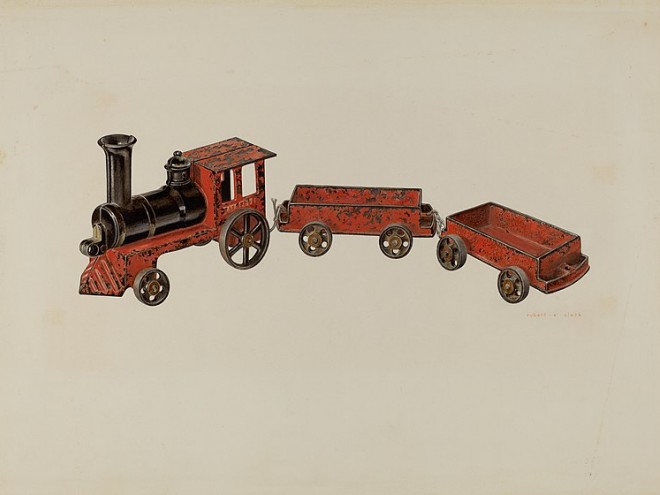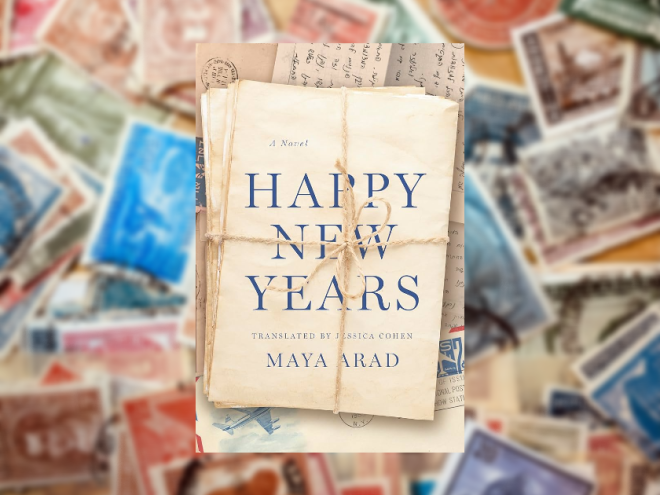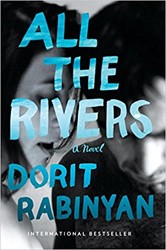In our April JBC Bookshelf, we featured a pdf version of an article that first appeared in the summer 2007 issue of Jewish Book World. We thought it would be a good idea to breathe new life into it by adding the text here, as well. This article was written by Jessica Cohen, the translator of two of the 2007 Sami Rohr Prize awardees: Choice Award winner Amir Gutfreund’s Our Holocaust and Finalist Yael Hedaya’s Accidents. In each summer issue we feature words from the current year’s Sami Rohr Prize honorees, and in 2007, in lieu of Jessica Cohen having translated two of the honored titles, we asked her to contribute to the section:
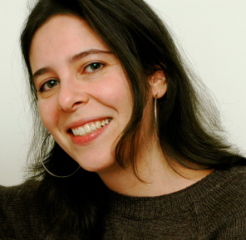 When I think of all the translators I have met since entering this fascinating profession, I cannot call to mind any who knew they wanted to be translators when they grew up. Most of us seem to have past lives — and often parallel ones — in other fields or entirely different professions, and many came to translation in roundabout ways. The common denominator among translators is, of course, an intimate knowledge of at least two languages. (Many translators are purely bilingual, although this is by no means requisite, and conversely, being bilingual does not necessarily make one a good translator.) Translators also possess an ability, and a drive, to constantly travel back and forth between their two languages and the cultural worlds they represent, and to build bridges so that others can follow.
When I think of all the translators I have met since entering this fascinating profession, I cannot call to mind any who knew they wanted to be translators when they grew up. Most of us seem to have past lives — and often parallel ones — in other fields or entirely different professions, and many came to translation in roundabout ways. The common denominator among translators is, of course, an intimate knowledge of at least two languages. (Many translators are purely bilingual, although this is by no means requisite, and conversely, being bilingual does not necessarily make one a good translator.) Translators also possess an ability, and a drive, to constantly travel back and forth between their two languages and the cultural worlds they represent, and to build bridges so that others can follow.
My own case is no exception. I was born in England and moved to Jerusalem with my family at the age of seven. In Israel, I spoke Hebrew in school and almost everywhere else, but continued to speak English at home and often spent time in English-speaking countries. I also got into the habit of reading almost exclusively in English, much to the chagrin of my Hebrew literature teachers, which contributed significantly to my English-language writing facility. I studied English literature at The Hebrew University of Jerusalem, and after moving to the U.S., I studied Middle Eastern literature and languages at Indiana University. This seeming contradiction — the constant peering into one culture while being immersed in another — is part of my identity, and now a central element of my chosen career. Like many immigrants and cultural transplants, I feel compelled to keep one foot in each culture, and to pursue the frustrating goal of bringing them closer to one another. And since literature is, to my mind, the greatest and most telling reflection of a culture and the repository of its language, what better way to achieve this reconciliation than to introduce the literature of one culture into another?
One of the paradoxes of being a literary translator is that the less attention we draw to ourselves, the better our work probably is. When I translate a book, my job is to find a way to convey the author’s style and voice. Ideally, the readers of my English translation will have the same experience as the readers of the Hebrew original. Geri Gindea, Director of the Sami Rohr Prize, recently commented on how surprised she was upon realizing that I had translated two of the finalists for the Sami Rohr Prize (Amir Gutfreund, winner of the Choice Award for Our Holocaust, and Yael Hedaya, Honorable Mention for Accidents), because the two books employ such very different styles. I took this as a compliment: if Yael Hedaya and Amir Gutfreund sound nothing like each other in English, then I did my job well, because they have very distinctive voices and disparate narrative styles in Hebrew.
Alongside these two young and exciting authors, I have also had the honor of translating a literary giant like David Grossman (Her Body Knows). Since Mr. Grossman has had many previous works translated into English and his reputation is well established, the challenge of retaining his unique voice was all the more daunting. I have also translated non-fiction works, such as the forthcoming book by Tom Segev (1967: Israel, the War, and the Year that Transformed the Middle East), which presented a challenge of a different sort: it is important to convey the fluid narrative style that is the mark of a good non-fiction writer, yet the primary objective in translating nonfiction must be to retain the clarity of the information and the author’s arguments.
Whatever I happen to be translating on a given day — a love story, a family saga, childhood recollections, or historical analysis — I strive to carry across into my translation not only the literal meaning of the words, but their cultural weight, their allusions, the imagery and emotions they evoke. This is rarely an easy task, and not always attainable, and every so often I have to accept that some things must be lost in translation. I am also aware that, much as no two writers will ever tell a story the same way, there are often infinitely varied ways of translating a line or even a single word. Finding the perfect turn of phrase brings a sense of satisfaction that all translators look forward to, and the search itself provides an opportunity to delve deeper into language and meaning, which is a part of my work that I relish. The first-rate writers I have been fortunate to work with, and the creative negotiation between different languages, cultures, and ways of looking at the world, make for an engaging and everchanging occupation.
Jessica Cohen has translated the following titles on the JBC website:
1967: Israel, the War, and the Year That Transformed the Middle East, Tom Segev
Accidents, Yael Hedaya
Eden, Yael Hedaya
Our Holocaust, Amir Gutfreund
The World a Moment Later, Amir Gutfreund
To the End of the Land, David Grossman
Find out more about Jessica by visiting her website: The Hebrew Translator.
